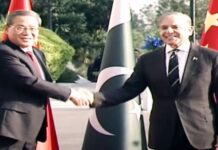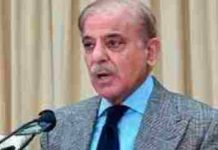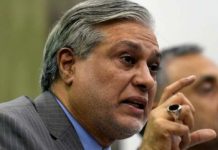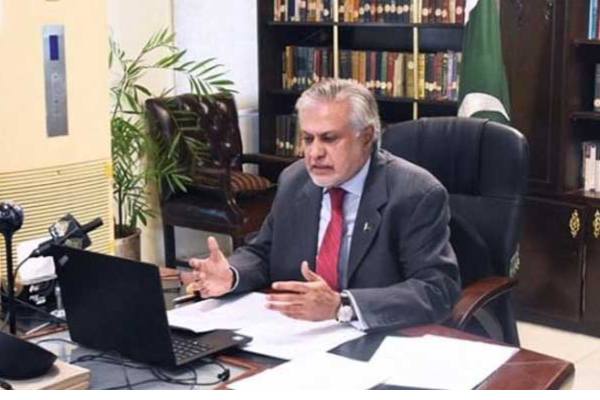ISLAMABAD, Jun 24 (NNI): In a desperate bid to finalize a stalled rescue package with the International Monetary Fund (IMF), the Pakistani government has agreed to implement a series of revisions to its fiscal year 2024 budget, according to Finance Minister Ishaq Dar.
Addressing the National Assembly, Dar confirmed that detailed negotiations had taken place between Pakistan and the IMF to ensure the completion of the pending review.
In the upcoming fiscal year, the government plans to generate an additional Rs215 billion in tax revenue while reducing spending by Rs85 billion. These measures, coupled with other strategies aimed at reducing the fiscal deficit, were highlighted by the finance minister.
One notable change in the budget is the decision to raise the petroleum development levy from Rs.50 to Rs.60 per liter.
Dar emphasized that the levy would not exceed Rs.60 per liter, ensuring that any benefits from a decrease in global petroleum prices would be passed on to the public.
Expressing optimism about the ongoing negotiations with the IMF, Dar remarked that Pakistan had fulfilled all the required criteria. He urged for a swift agreement with the IMF, stating that it would have positive ramifications for other financial institutions, who would subsequently be more inclined to support Pakistan’s economic trajectory.
Dar also provided insights into the country’s financial targets. The Federal Board of Revenue’s estimated annual revenue stands at Rs.9,415 billion, with a tax target of Rs.9,200 billion.
He assured that the proposed taxes would not adversely affect the poor, as they would not be imposed on development budgets, employees’ salaries, or pensions. To reduce ongoing expenses, an 85 billion reduction has been agreed upon.
The finance minister disclosed that the economic team had engaged in detailed discussions with the IMF over a period of three days, with the Prime Minister holding two meetings with the Managing Director of the IMF within the same week.
In an effort to address the escalating cost of pensions, the government has announced the discontinuation of multiple pension payments. Dar highlighted the unfairness of individuals receiving pensions from multiple institutions, emphasizing that officers above grade 17 would receive only one pension. Additionally, pensioners and their families would continue to receive benefits for a period of ten years following the death of the spouse.
Furthermore, the government has announced an increase in the budget allocated to the Integrated Social Protection Program (ISP). Former tribal areas and annexed districts will receive a boost, with an allocation of 30 billion rupees for solar tube wells and a 30 billion rupee subsidy on essential items at utility stores. The BISP budget is set to rise from 360 billion to 460 billion, ensuring greater support for vulnerable sections of society.
To address pending tax cases worth 3,200 billion rupees, the finance minister unveiled plans to introduce alternative procedures for resolving tax disputes. A three-member committee will be established to efficiently resolve these cases at a reduced cost and in a timely manner. In an effort to generate additional revenue, a windfall tax of up to 50% will be levied on unexpected profits within the reporting sector.
Furthermore, the government has proposed a duty of 2,000 rupees on substandard fans, aiming to conserve electricity and reduce bills. While fan manufacturers requested a six-month grace period for technological adjustments, the tax on fans will be applicable from January 1, 2024.
In a significant development, all restrictions on imports have been lifted by the State Bank, allowing for increased business opportunities and benefits for investors. The finance minister explained that these restrictions, which were imposed in December of the previous year, have been revoked, providing a boost to the economy.
To enhance tax revenue and bolster foreign exchange reserves, a supertax has been imposed on individuals with high incomes. These measures are anticipated to facilitate timely external payments and bolster domestic foreign exchange reserves.
The government’s efforts to secure the IMF rescue package, implement fiscal reforms, streamline pensions, expand budgets, and impose additional taxes highlight its commitment to stabilizing Pakistan’s economy and achieving sustainable growth. NNI








































